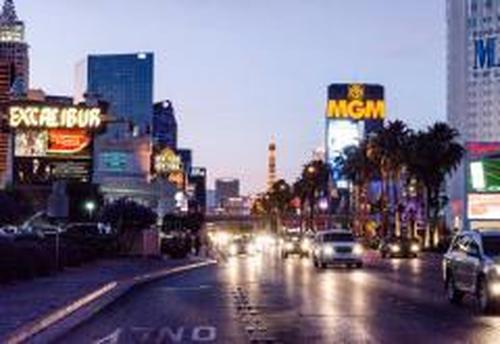Investors Are On The Lookout For A Crash. But Prices Keep Going Up
Authored by Doug French via The Mises Institute,
An insider confided to a friend that all he is doing right now is transaction work for real estate holders who are selling now before the market crashes. His clients, members of Sin City’s illuminati, once bitten by the ‘08 crash, believe they’ll beat the crowd to the sales window before the local retail and office market collapses.
Easy peasy.
With the country just emerging from lockdown, where’s the crash already? The original grave dancer, Sam Zell, has left the cemetery and is “following the pack and spending big on something safer,” Peter Grant wrote in the Wall Street Journal.
One of Zell’s companies paid $3.4 billion for Monmouth Real Estate Investment Corp. Not all distressed, Monmouth “owns 120 industrial properties in 31 states,” Grant reported.
“The sector is one of the most profitable because of high demand for fulfillment centers from e-commerce companies such as Amazon.com Inc.”
Bloomberg reported a year ago that Amazon-leased buildings could sell for a capitalization rate of 4 percent, the equivalent of twenty-five times earnings. A Las Vegas real estate broker and developer who is also doing business in red-hot Reno said recently, “Amazon buildings will start selling for three CAPs soon.”
Back in the days of quasi-laissez-faire, a pandemic would have created plenty of opportunities for the Zells of the world, but, as Grant explains, “Hotels, malls and other properties have suffered enormous declines in revenue. But few owners have been forced to sell at steep discounts thanks to government stimulus programs and the Federal Reserve’s easy money policy which kept a lid on foreclosure.”
Zell does think retail properties are a “falling knife.” Zell said,
“There obviously is going to be an opportunity in retail. I just don’t think it’s here yet.”
He added that hotels also look expensive:“I can’t relate … pricing to the way I see opportunity.”
Billionaire Charles Koch can relate. His Koch Real Estate Investments took over the unfinished multibillion-dollar hotel and casino Fountainbleau development on the Las Vegas Strip after the previous owner defaulted on the mortgage.
Florida developer Jeffrey Soffer bankrupted the sixty-three-story, four thousand–room project in the 2008 crash, before the doors were ever opened. In 2010, an opportunistic Carl Ichan bought it for $150 million (essentially the trade liens on the property), “sold the furniture, and flipped it to New York developer Steven Witkoff for $600 million seven years later,” Konrad Putzier reported earlier this year.
Witkoff couldn’t obtain a construction loan to finish and defaulted on loans from JPMorgan Chase and Deutsche Bank AG, as well as more than $200 million in subordinate debt held by South Korean investors.
Koch appeared, bought the JPMorgan note for $350 million, and waved goodbye to the South Koreans and Witkoff. Koch has brought back Mr. Soffer to restart the project. Putzier wrote in March that the project was far from a sure bet.
However, the opening of Resorts World on the former Stardust site on the Strip’s north end recently has the town abuzz. The Fountainbleau is nearby.
Once upon a time, the casino was king of the Strip’s income department. Not so much anymore. Hotel casinos might as well be shopping malls with some slots and table games attached. During the boom years the casino accounted for only 30 to 40 percent of revenues. And while the floor space, with the odds stacked in the houses’, favor has crept upward in recent years, it’s still not half a property’s revenue.
Ludwig von Mises explained, “Interventionism means that the government not only fails to protect the smooth functioning of the market economy, but that it interferes with the various market phenomena; it interferes with prices, with wage rates, interest rates, and profits.”
Mr. Zell’s goal was always to reinvest that cash. “What it tells you about the Covid era is that they just couldn’t find true distress,” Mr. Lachance said.
No distress means a manipulated market that economic actors cannot assess properly. In the end, “as the government goes farther and farther,” Mises wrote, “it will finally arrive at a point where all prices, all wage rates, all interest rates, in short everything in the whole economic system, is determined by the government. And this, clearly, is socialism.”
Las Vegas was once a city driven by odds. No more. Now government has loaded the dice.


Δεν υπάρχουν σχόλια:
Δημοσίευση σχολίου